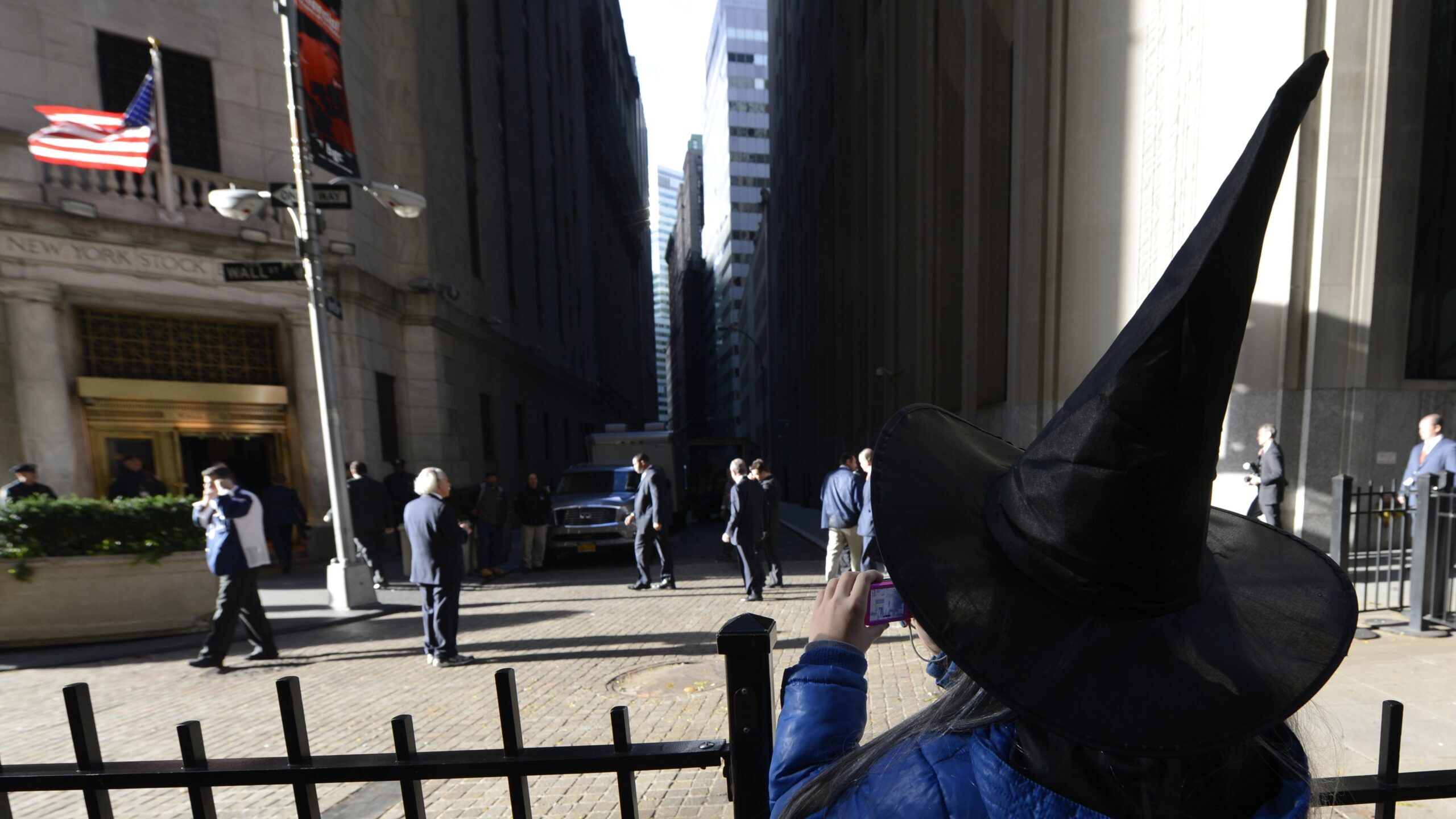Why October 2023 is scaring Wall Street investors
NEW YORK (CNN) — October has a long history of spooking Wall Street, and this week’s market action is serving up a particular dose of terror for traders.
Markets fell sharply on Tuesday. The Dow lost 454 points, or 1.3%, notching its biggest decline since March and turning negative for 2023. On Wednesday, the Dow gained 127 points, recovering about a third of a percentage point.
CNN’s Fear & Greed Index, which tracks seven market indicators, sank to an “Extreme Fear” reading of 14, which marks the index’s lowest level since last October.
And with bank earnings reports beginning on Friday the 13th, and the next Federal Reserve policy meeting starting on Halloween, this spine-tingling season may be a long one for the markets.
Here’s why investors are freaking out
Rates and the Fed: A surge in corporate debt sales and rising bond yields have sent stocks lower. Stocks often struggle when government bond yields are elevated, since it means investors can get high returns on less risky assets.
Meanwhile, stronger-than-expected jobs data has exacerbated anxiety that the Fed will decide to keep interest rates higher for longer. Mortgage rates are racing toward 8%, after hitting their highest level since 2000 last week. High interest rates tend to eat into corporate profits and drag stock values lower.
Government dysfunction: Adding to the volatility is chaos in America’s Congress. Markets continue to reel from a narrowly avoided federal government shutdown last weekend over the fiscal budget. And Tuesday, House Republicans voted to oust Speaker Kevin McCarthy from his role because he worked with Democrats to avoid the shutdown.
“The news out of the House today once again highlights the difficult political backdrop in addressing such issues,” said Michael Reinking, manager of NYSE research.
Moody’s, the only major credit rating firm to keep a perfect score for the United States, has warned that a government shutdown would be “credit negative” for the United States. More political disorder could also potentially trigger a downgrade.
On top of that, about 43 million Americans will face their first student loan bill since 2020 next week, potentially stymieing consumer spending.
Geopolitical risks are still elevated as Russia’s war on Ukraine continues and relations between the United States and China remain tense. Oil prices, meanwhile, are still sitting near their highest level in more than a year.
But even as the woes mount up, some analysts still think this downturn is mainly about seasonality.
The “October Effect”: Several historic stock market crashes have haunted the autumnal month. Black Tuesday, the 1929 market plunge that led to the Great Depression, 1987’s Black Monday and the beginnings of the 2008 financial crisis all took place in October.
October also marks the end of the fiscal year for many mutual funds in the United States. This sometimes leads to so-called “window dressing,” where fund managers sell poorly performing stocks and purchase better-performing alternatives to improve the appearance of their portfolios.
These events have led investors to fear the cursed “October Effect,” a perceived tendency for the stock market to decline through the month. Statistical evidence doesn’t quite support the phenomenon, but the level of superstitious caution on Wall Street is real.
That can create a self-fulfilling prophecy. As investors become wary of the effect, their heightened caution or predisposition to sell off at the first sign of volatility could lead to downturns.
Yes, but: While October has seen sharp declines on occasion, it has also seen substantial market recoveries and gains. Over the long term, October’s performance, when averaged out, isn’t as dire as the reputation might suggest.
No particular month can really claim to be the worst.
As Mark Twain wrote way back in 1894, “October. This is one of the peculiarly dangerous months to speculate in stocks,” adding that “the others are July, January, September, April, November, May, March, June, December, August, and February.”



